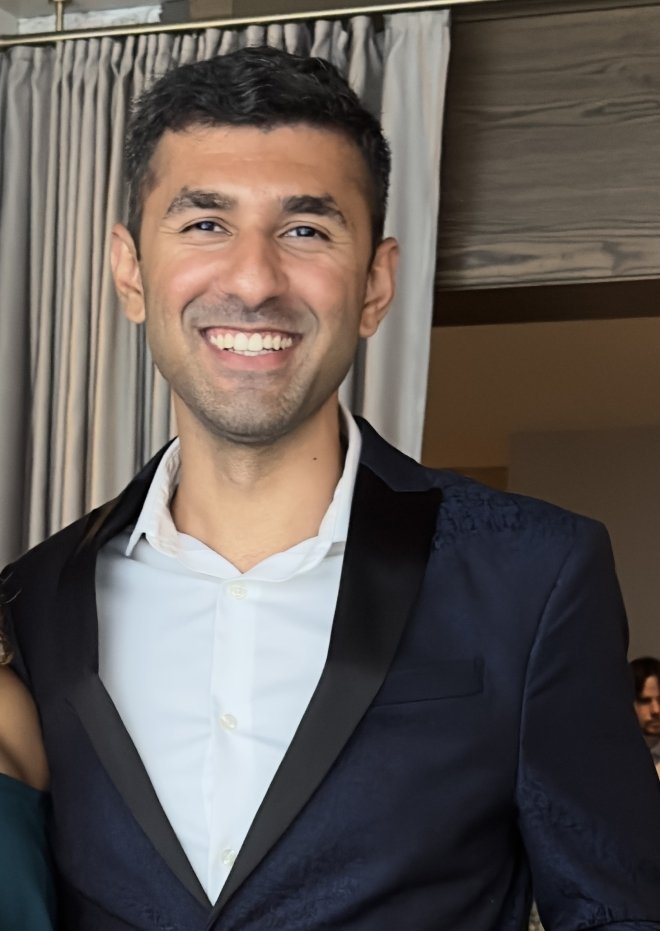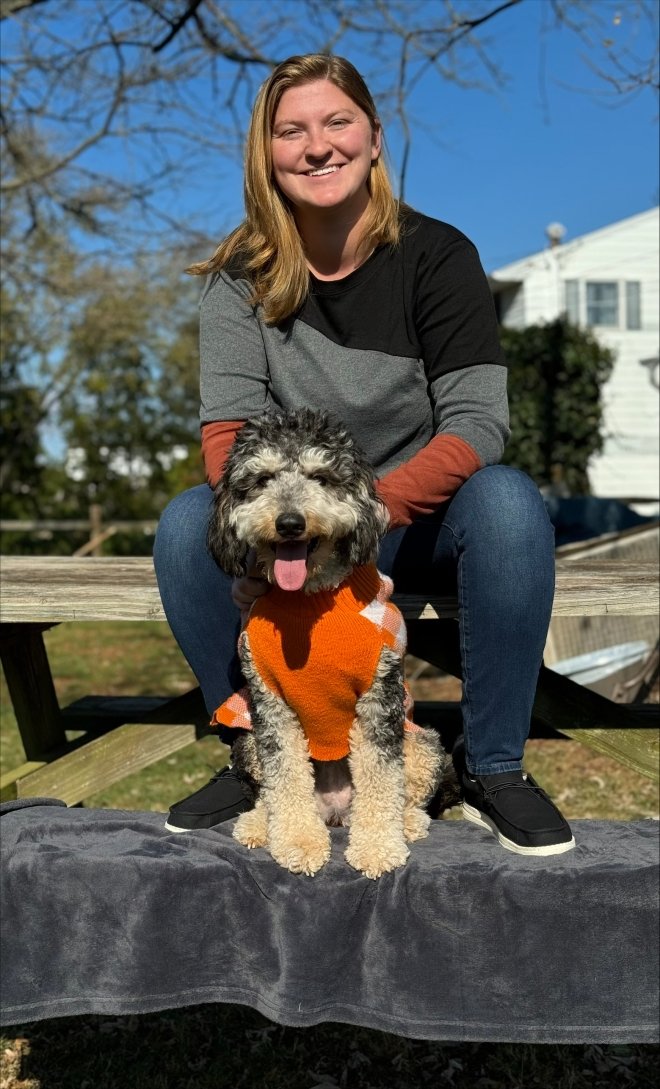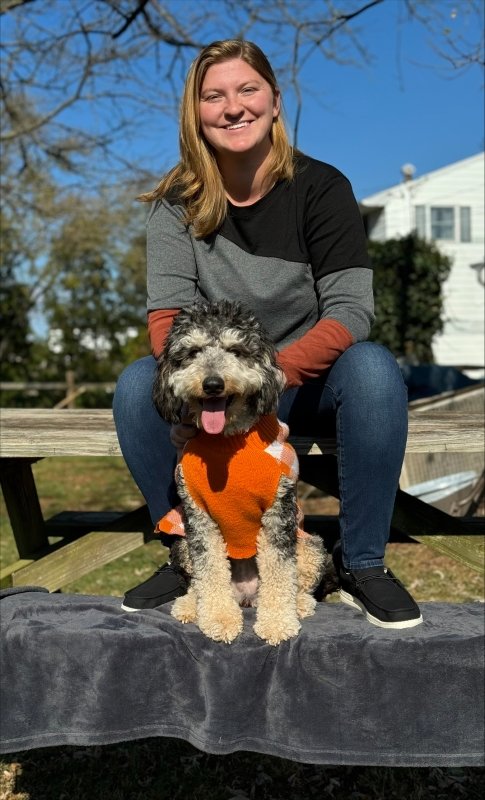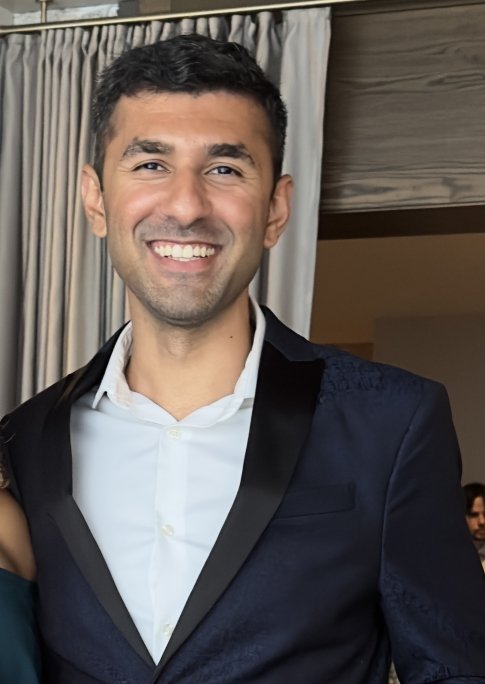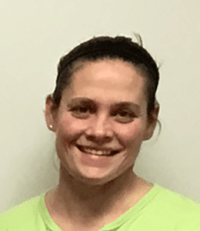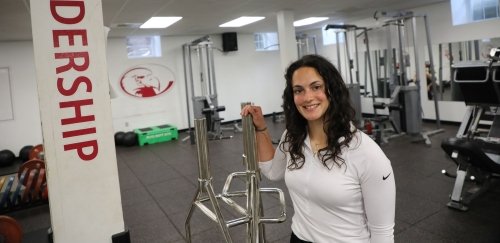
Master's in Sport and Performance Psychology
The 100% online Master of Science in Sport and Performance Psychology provides students an education based on current best practices stemming from empirical research and applied work. Psychosocial determinants of performance and mental skills training are emphasized throughout the program, providing students with strong experiential and research-based learning activities in an inclusive and equitable environment.
- Degrees & Offerings
-
- M.S.
- Location
-
- Online
- Department
- Program Contact
-
Professor
Sport and Performance Psychology Program

- Program Delivery – Available 100% online through asynchronous delivery.
- Flexible Start Dates – Students can begin coursework in the fall, spring, or summer semesters.
- CMPC Certification – Coursework available to meet all knowledge areas for the Certified Mental Performance Consultant certification exam.
- Who Should Apply – Whether you studied communications, psychology, or sports management — our M.S. Sport and Performance Psychology can enhance the skills you already have and prepare you for a leadership role in the field.
- Full-time and part-time options available – Full-time graduate students take nine credits in the fall and spring and up to twelve credits over the summer. Students who attend part-time can take three or six credits per semester, and this can vary by semester based on their individual needs.
- National Rankings – Ranked #2 on GetEducated's '5 Best Online Master’s in Sports Psychology', #1 graduate program on SportsPsychology.org's list of 'Best Sports Psychology Programs in PA', and #5 on Online Psychology Degrees list of 'Best Sports Psychology Masters Programs.'
- Incoming Cohorts: The Spring 2025 cohort has reached capacity. The Summer and Fall 2025 application is available now online.
Courses and Curriculum
Degree Requirements Degree Works
Note: Degree requirements effective for enrolled students beginning Fall 2023. All enrolled students, including matriculating students prior to Fall 2023, can review their degree program requirements and track progress to degree completion with our degree audit and advisement tool, Degree Works.
- SPPP500 Research Methods in Sport Psychology
Provides an overview of descriptive and experimental research strategies and designs relevant to sport and exercise science. Prepares graduate students to design, conduct, and report research. Emphasis is placed upon planning research, utilizing research methods, and interpreting results. - SPPP503 Mental Health in Sport and Performance Setting
Provides a strong base of knowledge of theory, research, and practice related to mental health and sport and performance settings including and examination of psychological disorders and abnormal human behavior. Provides prospective sport and performance psychology professionals with essential information for mental health promotion in sport and performance settings. - SPPP504 Cognitive and Affective Bases of Behavior
Examines the cognitive and emotional influences on behavior. Students will gain knowledge of the developmental sequences associated with cognitive development, emotional development, and moral development. Students will also gain an understanding of how humans process information and organize their knowledge and emotional experiences. Students will be required to integrate theoretical knowledge with practical strategies and interventions appropriate for youth and adolescents. - SPPP510 Foundations of Sport and Performance Psychology
Surveys the psychological factors related to performance and participation in sport and performance settings. Emphasis is placed on determining how psychological variables influence participation in physical pursuits and how participation affects the psychological well-being of the individual. This course will assess theoretical and methodological approaches to a variety of sport and performance psychology topics including motivation, group processes, competition, and performance enhancement. - SPPP511 Sport and Exercise Psychology Across the Lifespan
Focuses on developmental changes in the psychosocial antecedents and consequences of sport and physical activity across the lifespan. Specific topics include (1) describing theoretical frameworks and methods used to study sport and physical activity related psychosocial development across the lifespan, (2) describing how self-perceptions develop and influence behavior in movement contexts at different points in life, and (3) explaining how social and contextual factors influence developmental processes associated with physical activity. - SPPP512 Sport Psychology for Performance Enhancement
Evaluates the nature of performance, sources of performance crises, and self-regulation strategies used to enhance sport performance. Specific objectives include (a) distinguishing the antecedents and consequences of subjective and objective performances, (b) conceptualizing motor performance and performance problems in a psychological context, and (c) matching psychologically-based performance problems with theoretically-based intervention strategies. This class is specifically designed to help students formulate practical strategies for teaching various psychological skills from an education perspective. - SPPP513 Psychology of Athletic Injury and Recovery
Examines the psychological theories and applied considerations related to athletic injuries and the subsequent rehabilitation of the physically active. In this course, emphasis is placed on the psychosocial antecedents to athletic injury and factors related to the psychological experience and treatment of the injured athlete and athlete in transition. - SPPP514 Stress Management for the Physically Active
Examines the demands of athletic competition that cause stress for athletes, coaches, and other sport figures. The students will identify the psychophysiology of the stress response and the individual/ performance costs of distress. Emphasis is placed on the principles and methods of preventive stress management, such as social support, exercise, and the relaxation response and their application in sport and exercise settings for improved performance - SPPP515 Seminar in Sport Science
Incorporates an intensive seminar approach to the study of sport and performance psychology. The course will address contemporary issues and emerging trends in sport and performance psychology and examine their historical and cultural significance. Specific topics will vary and may be repeated if the topic under study is different. - SPPP516 Professional Ethics in Applied Sport Psychology
Examines the professional and ethical issues relevant to the practice of sport and performance psychology. The goal of the course is to encourage ethical behavior of sport and performance psychology professionals consistent with the ethical principles and guidelines recognized by the discipline. These include competence, integrity, professional and scientific responsibility, respect and concern for others, and social responsibility. - SPPP517 Cultural and Ethnic Diversity for Sport Psychology Consulting
Examines the influence of cultural and ethnic differences on the delivery of sport psychology consulting. This course is designed to develop appropriate skills, competencies and knowledge of consultants working with diverse populations. The analysis of conceptual frameworks for sociopolitical and cultural factors that impact human behavior will provide an understanding of diversity, multiculturalism, and cultural awareness. Students explore topics including culture, ethnicity, race, national origin, language, physical appearance and ability, sexual orientation, and spirituality. - SPPP518 Counseling Skills for Sport and Performance Psychology
Introduces fundamental counseling skills and techniques relevant to sport and performance psychology. Students will develop skills in presenting sport psychology intervention material. Included are tools for building rapport, empathy, listening and life-development skills, treatment versus consulting, ethics, closure, and termination. Students will become aware of the boundaries of the sport and performance psychology consultant and how to refer for clinical issues. - SPPP519 Gender and Sport
Surveys aspects of the historical and contemporary role of men, women, and diverse gendered athletes in US and global communities. Encourages an awareness regarding the similarities and differences in sport experiences for people of different genders, races, and sexualities. Students explore past and current issues and practices in US and global sport through the study of theory and research, with an emphasis on empathy, understanding, and inclusivity as it relates to sport and performance psychology. - SPPP530 Capstone in Sport and Performance Psychology
Facilitates the design, development and implementation of a capstone project in sport and performance psychology. Students are required to conduct a comprehensive synthesis of the literature on an approved topic in sport and performance psychology and complete a related research project from question development through data collection, analysis and interpretation. - SPPP531 Mentored Experience in Sport and Performance Psychology
Provides opportunities for sport and performance psychology students to develop applied skills in real life situations under the supervision of a sport and performance psychology professional. The skills developed by the students will address competencies and proficiencies as directed by the Association for Applied Sport Psychology (AASP).
To complete the admissions process, students must submit:
- Online application.
- Bachelor’s degree
- Cumulative GPA of a 3.0 or higher.
- Two (2) letters of recommendation.
- Statement of professional goals.
*Students wishing to apply to this program who do not have a 3.0+ GPA, can apply for conditional admission if their undergraduate GPA falls between 2.75-2.99. Students accepted as conditional admit must earn and maintain a minimum of 3.0 or higher throughout the program. Failure to earn a B or better could result in probation or removal from the program.
Application materials may be sent electronically to gradadmissions@commonwealthu.edu or mailed directly to the following address:
Commonwealth University - Lock Haven
Office of Graduate Admissions
401 N Fairview Street
Lock Haven, PA 17745
*Commonwealth University graduates do not need to request transcripts; the Office of Admissions will do this on your behalf.
Students also have the option of registering for up to four courses (12 credits) as a non-degree seeking student and have those courses automatically transfer to degree seeking status upon official enrollment in the program. If you would like to register for courses as a non-degree student please complete the Non Degree application.
Note: Non-degree seeking students are not eligible for state or federal financial aid.
| AASP Certification Course Requirements (* = must be graduate level) | Courses |
|---|---|
| K1. Professional Ethics and Standards* | SPPP516: Professional Ethics in Applied Sport Psychology |
| K2. Sport Psychology* | SPPP510: Foundations of Sport & Performance Psychology SPPP512: Sport Psych for Performance Enhancement SPPP513: Psychological Aspects of Injury & Recovery SPPP514: Stress Management for the Physically Active |
| K3. Sport Science | SPPP519: Gender and Sports |
| K4. Psychopathology | SPPP503: Mental Health in Sport and Performance Settings |
| K5. Helping Relationships* | SPPP518: Counseling Skills for Sport Psychology |
| K6. Research Methods and Statistics* | SPPP500: Research Methods in Sport Science |
| K7. Psychological Foundations of Behavior | SPPP515: Seminar in Sport Science (if topic appropriate – individual course outline must be reviewed by AASP) SPPP504: Cognitive and Affective Bases of Behavior |
| K8. Diversity and Culture* | SPPP517: Cultural & Ethnic Diversity for Sport Psych Consulting |
| Mentored Experience in Sport and Exercise Psychology | SPPP531: Mentored Experience in Sport and Performance Psychology |
Kutztown University Agreement
Any student enrolled in the BS in Psychology at Kutztown who has earned junior standing (completed at least 60 credits) and a 3.0 cumulative GPA or higher will be provisionally accepted into the MS in Sport and Performance Psychology at Commonwealth. Provisionally accepted students may enroll in up to 12 graduate credits in the MS in Sport and Performance Psychology program at Commonwealth prior to the completion of their undergraduate program. Upon graduation from Kutztown University with a BS in Psychology, provisionally accepted students will be admitted into the MS in Sport and Performance Psychology at Commonwealth University.
The Master of Science in Sport and Performance Psychology provides students an education based on current best practices stemming from empirical research and applied work. Psychosocial determinants of performance and mental skills training are emphasized throughout the program providing students with strong experiential and research-based learning activities in an inclusive and equitable environment.
Our values reflect:
- Evidence informed best practice based on research and applied work
- Diversity, equity, and inclusion
- Flexibility for the traditional and non-traditional learner
- Emphasis on enhancing the quality of life of clients, coaches, parents, and others
- Emphasis on real-world learning experiences
- Certification: Courses have been approved by the Certification Council for certification through the Association for Applied Sport Psychology
Below are a few of the most common questions we hear from prospective students:
- Q: Do I need a degree in counseling, psychology, or education to be admitted?
A: No- it’s an excellent fit for students from any undergraduate major. Some of the more common applicant majors are psychology, sociology, communications, and education. Some of our best students don’t have a related degree, but their athletic participation history makes them right for the program - Q: How is the program delivered?
A: Coursework is delivered 100% asynchronously online. - Q: How long does it take to complete the program?
A: Students can choose to take courses on a full- or part-time basis. Full-time students can finish the program in just one year; most part-time students finish in roughly two years. - Q: What are my career options after I graduate?
A: You'll be able to enter a wide variety of fields. Recent alumni have accepted positions as a mental performance coach, coordinator of mental skills programs, wellness coach, athletic academic advisor, athletic performance consultant, and a variety of collegiate and professional coaching positions. - Q: Do I need to attend full-time?
A. Students can attend full-time or part-time. Typically, full-time graduate students take nine credits in the fall and spring, and up to twelve credits over the summer. Students who attend part-time can take three or six credits per semester and this can vary by semester based on their individual needs. - Q: What if I need to take a semester off?
A. Many of the students in our program work full-time and occasionally need to take a semester off. Coaches in our program, for example, may not want to take classes when their sports are in season (and then double up the following semester). Students are allowed to step out for a semester and return to classes afterwards. When they are ready to begin classes again, students should submit a readmission application through the Office of Graduate Admissions. - Q: Can I transfer in credits?
A. Students can transfer up to 6 credits into the graduate program. To have courses evaluated, please contact the Program Coordinator. Please include the course name and description - in some cases, a syllabus may be required to accurately evaluate student learning outcomes. - Q. Do I need to take the GRE in order to apply?
A. No- the GRE is not required for admission.
ONWARD AND UPWARD
Careers
Career options associated with this program include:
Potential Job Opportunities
- AASP Certified Consultant
- College Athletic Academic Advisor
- Lifestyle Coach
- Fitness Consultant
- Mental Performance Coach
- Sports Psychologist
- Coach
- Player Development Manager
- Wellness Coach
Sport and Performance Psychology Faculty
Applying to Graduate Programs
Apply
-
Application Process
Review the step-by-step application process for graduate school at Commonwealth University.
-
Apply Now
By starting your application, you gain access to your personalized application portal to view your progress.
-
Contact Us
If you have questions, we have answers. Contact us today!
Explore More
-
Grad Assistantships
Help finance your grad degree. Gain professional experience. Grow your network.
-
Tuition and Fees
Earning an advanced degree is an investment in your future. See just how affordable a graduate degree can be for you.
-
Understanding Financial Aid
Our Financial Aid team is your guide to navigating the aid process for your graduate degree.
Want to Know More?
- University-wide

